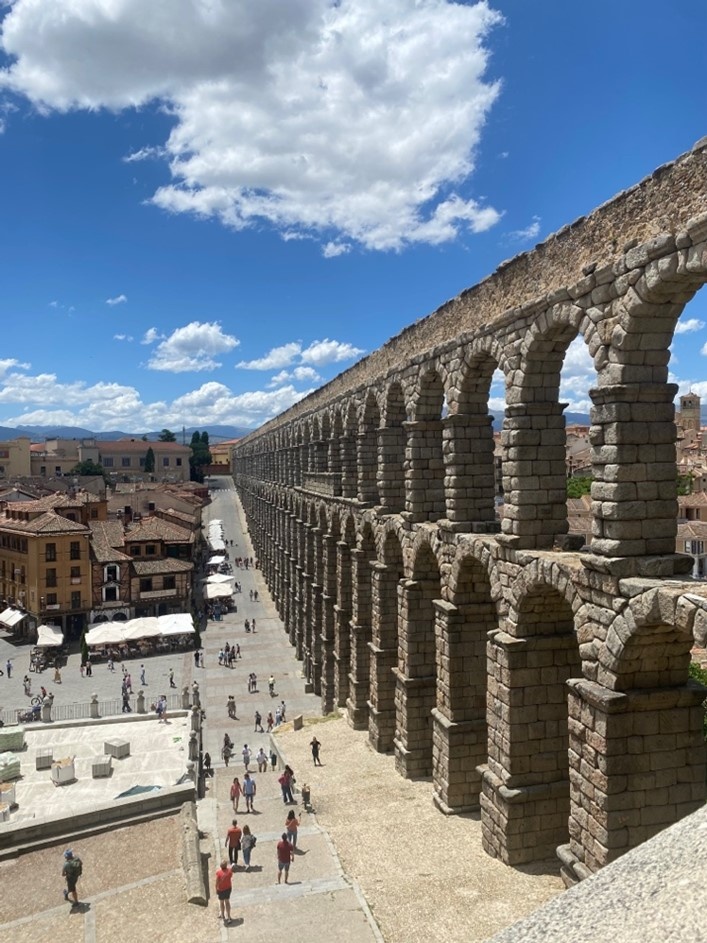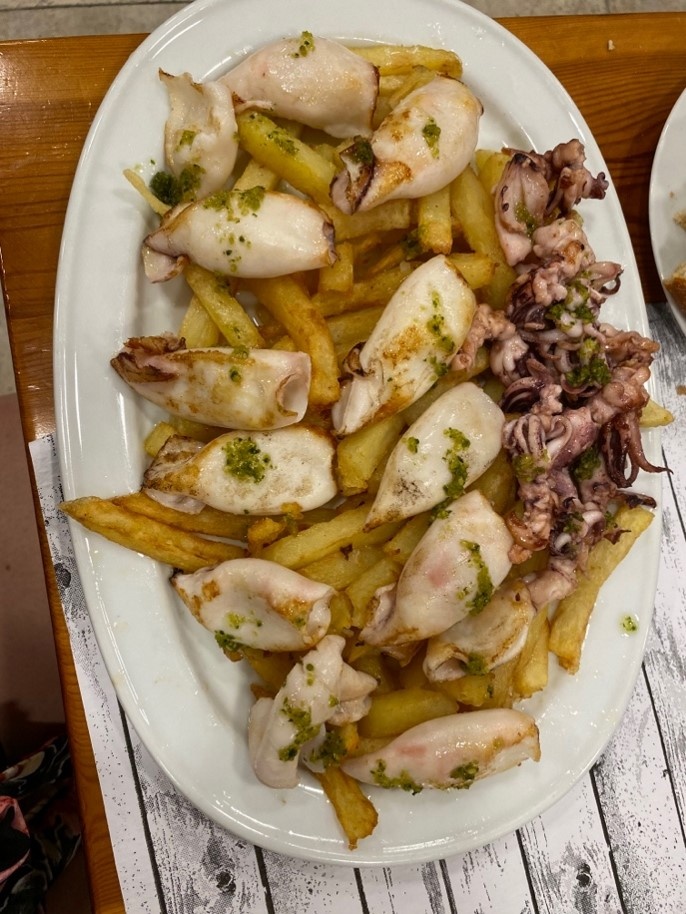
Hi, my name is Julia Nightser, and I studied abroad in Valladolid, Spain. However, I got the opportunity to travel around Spain, gaining more cultural exposure to the different areas. I am of Native American descent and a member of a tribe, although I have very pale skin and don’t look Native at all. I would say this identity was a privilege for me while studying abroad, but it has also been throughout my entire life. For example, some students of color who study abroad may be nervous or scared because they aren’t sure how the locals of the new country will react to their skin color. They don’t have a choice to be vulnerable about their identity because it is very clearly seen. With that in mind, I wanted to make myself vulnerable, so I spoke to my host family about my tribe and identity. I was shocked to discover that they didn’t think much about it. They kind of just said oh, ok, as if it didn’t matter to them, in a good way. They accepted me; however, it is important to understand that not all host families will be as welcoming as mine.
"After being so accepted by my host family and others in Spain, I now feel proud of my identity. I understand now that skin color doesn’t matter. It is where you came from, grew up, and who raised you that matters."
Before I went to Spain and while growing up, I was always ashamed and felt like an imposter for claiming my Native identity because my skin was so white. I understood that I was truly Native, but no one took me seriously because they said I didn’t have the right skin color. After being so accepted by my host family and others in Spain, I now feel proud of my identity. I understand now that skin color doesn’t matter. It is where you came from, grew up, and who raised you that matters.

One challenge I faced while studying abroad was living with people I didn’t know. I had my host family, of course, whom I had never even met, but I also shared a room with a roommate who was also in the program and from the University of Iowa. This was hard for me because I have never shared a bedroom with siblings or had a roommate other than my boyfriend. I felt very vulnerable and nervous, but it got easier with time. My roommate and I communicated well to make sure we weren’t bothering each other, and we made compromises as necessary.
It was hard to live with a host family not only because they were strangers but also because I’m not fluent in Spanish yet, and they didn't know English. Learning their expectations of us living in their home took time because they often had to physically show us what was right or wrong because we didn’t understand in Spanish. I tried my best to practice my Spanish with them so I could really get to know them and make a good connection.
Something I learned about myself while studying abroad is how important it is to be physically active for my mental health. I haven’t been physically active since high school, but while in Spain, I walked at least five miles a day. I found that, overall, I felt happier and less stressed. I felt like I could conquer the world. Some might say this overwhelming happiness could have been a honeymoon phase of traveling abroad, but I don’t think so. I started to get homesick toward the end, and going for long walks always boosted my mood.
Lastly, I learned a lot about the culture in Spain. For example, breakfast, lunch, and dinner times are much different. Breakfast was around 7 a.m., however it was usually a very small one, with coffee. Lunch wasn’t until 3 p.m., with dinner at 10 p.m., and coffee in between. Most people didn’t go to bed until midnight or later but took a nap between lunch and dinner. I loved this new routine and wish it would work for my schedule here in the States.
Julia Nightser (enterprise leadership), a Diversity Ambassador Scholarship recipient, participated in the UI faculty-led Iowa Hispanic Institute program in summer 2022.
LEARN HOW YOU CAN APPLY FOR A DIVERSITY AMBASSADOR SCHOLARSHIP
The Diversity Ambassador Scholarship program provides awards to study abroad for a summer, semester, or academic year. The scholarships are intended to support the diversification of students who study abroad. Upon completion of the study abroad program and return to UI, award recipients are asked to submit a photo and an open letter to prospective students or suggest an alternate means of sharing with prospective students.
Please note that the opinions and views expressed by diversity ambassadors are solely those of the students and do not reflect or represent the views of International Programs or the University of Iowa.
International Programs (IP) at the University of Iowa (UI) is committed to enriching the global experience of UI students, faculty, staff, and the general public by leading efforts to promote internationally oriented teaching, research, creative work, and community engagement. IP provides support for international students and scholars, administers scholarships and assistance for students who study, intern, or do research abroad, and provides funding opportunities and grant-writing assistance for faculty engaged in international research. IP shares their stories through various media, and by hosting multiple public engagement activities each year.


